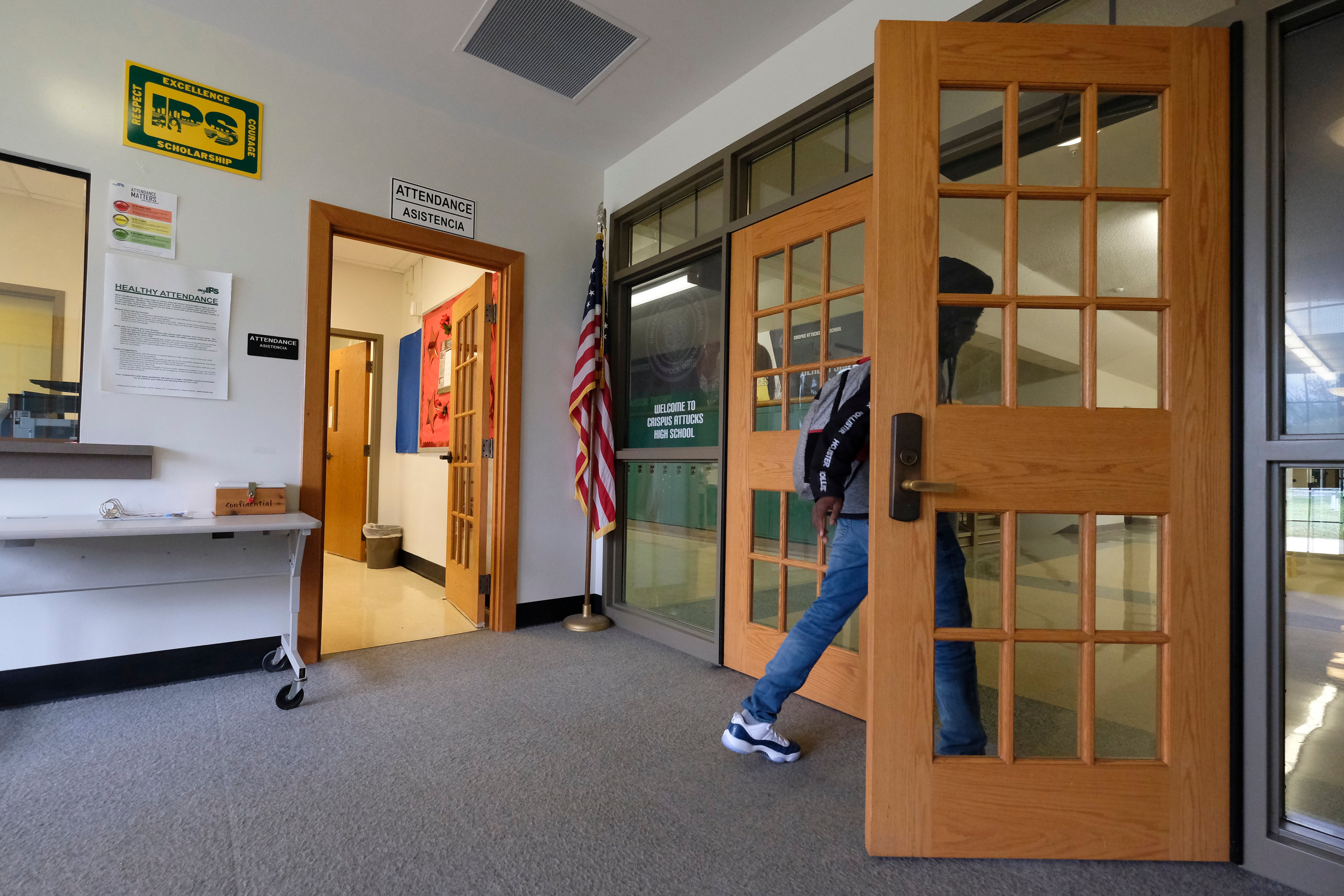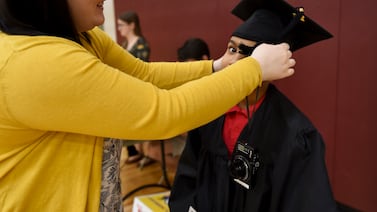Indianapolis districts pushed back Friday on a leading lawmaker’s statement that schools will face reduced state funding if they don’t reopen classrooms for in-person instruction.
The threat forces schools to make “an impossible choice” between taking deep cuts they can’t afford or putting students, families, and teachers at risk of contracting COVID-19, wrote Indianapolis Public Schools Superintendent Aleesia Johnson in an op-ed.
“Our district would face $28 million in cuts as retribution for protecting our children’s health, and anyone who walked a day in our shoes over the past five months would not dare to suggest that schools could operate under the current context with less funding,” Johnson wrote.
State Senate President Pro Tem Rodric Bray stirred contention with a letter Thursday warning that schools would lose 15% of their per-student funding if they did not offer families the option of returning to classrooms. That’s because the districts would be considered full-time online schools, which receive less funding than brick-and-mortar schools.
Bray said state leaders intended to protect funding for schools that open for at least some in-person instruction, even if families opt to keep students at home on a virtual learning track.
Bray’s stance conflicted with state leaders’ previous pledges to preserve state funding for schools as they navigate instruction during the coronavirus pandemic. While Gov. Eric Holcomb has stressed that he believes schools can safely reopen, he has also left many decisions up to local schools and shielded schools from funding cuts when tax revenues fell amid his stay-at-home order and other restrictions.
“As I’ve said before, I am committed to providing 100 percent funding to schools as they navigate the unprecedented challenges of opening the academic year during the COVID-19 pandemic,” Holcomb said in a statement Friday. “Many schools are returning with classroom instruction thanks to the herculean efforts of our public health officials, educators, students, parents, and communities. They all need our support now more than ever.”
On Friday, Bray clarified that his letter “was neither intended as a change in position, nor as a threat to schools who are choosing not to reopen to in-person instruction… Schools are making significant reopening decisions, and I feel the clarification I provided in my letter is important for school leaders to know so they can make fully informed decisions that will work best for their districts.”
Bray’s letter comes as many districts have already begun the new school year or settled on plans crafted through the summer. In July, several Central Indiana districts walked back ambitious reopening plans as coronavirus cases increased.
“Public health is not something to be trifled with or politicized,” said Pike Township Superintendent Flora Reichanadter in a statement. Her district is starting remotely next week and will review whether schools can open for in-person instruction after Labor Day.
“We all want in-person instruction to resume if, when, and where it is safe to do so. That will not be possible if schools are not provided with the full funding they need to operate,” Reichanadter said. “We will all suffer if there is even the perception that schools are being forced to make decisions that prioritize the funding they need to operate in the safest manner possible, whatever that may be, over the health and well-being of their students.”
IPS decided last week that it could not safely reopen schools and changed course to start the year remotely through October, after the spread of the coronavirus worsened in the city.
“I will not open our schools at risk of the safety of our students, staff, families and community,” Johnson wrote. She ended the op-ed saying, “Indianapolis Public Schools is being asked to do so much more. We cannot do it with less.”






